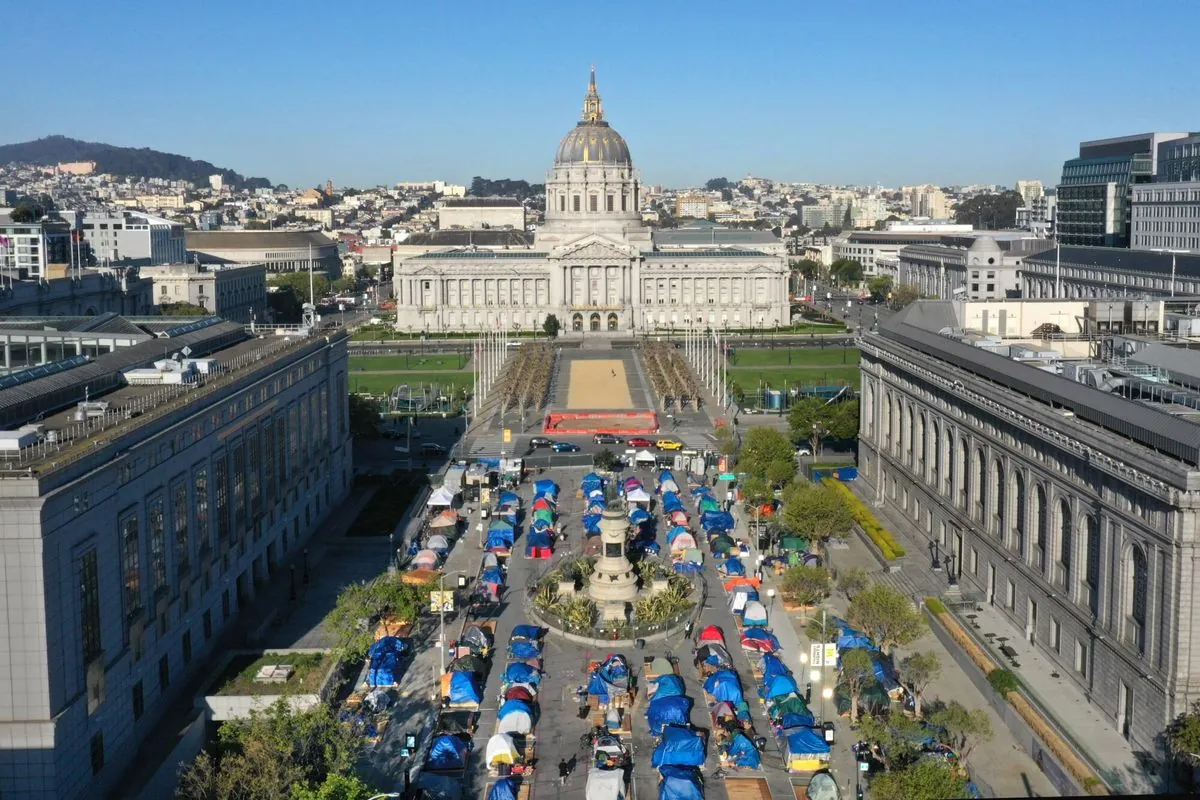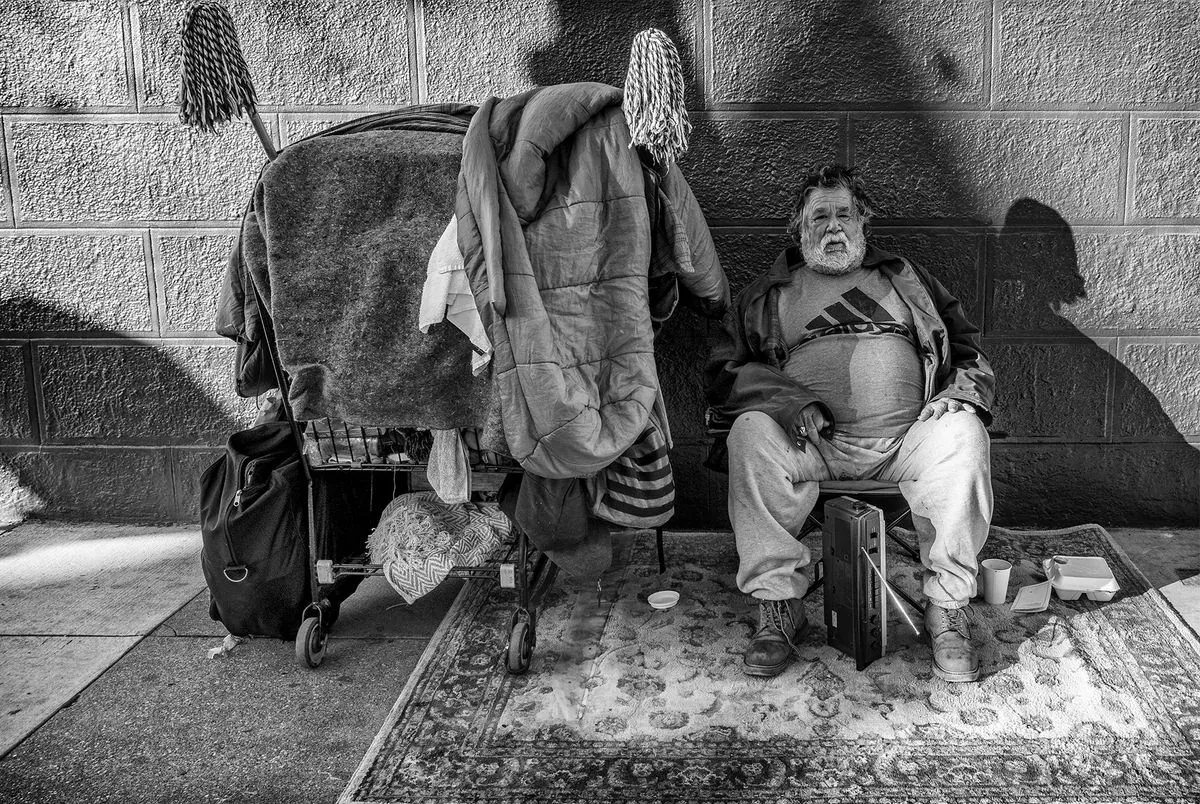San Francisco's Homelessness Crisis: Mayoral Race Heats Up Over Solutions
San Francisco's mayoral candidates clash over homelessness strategies as the city grapples with encampments. The debate reflects a broader national struggle to address the growing crisis in urban areas.

In San Francisco, a city renowned for its steep hills and iconic Golden Gate Bridge, a different landscape has come to define its streets: homeless encampments. As the November 2024 mayoral election approaches, incumbent London Breed and her four challengers are embroiled in a heated debate over how to address this pressing issue.
Breed has recently initiated a crackdown on outdoor sleeping, aiming to clear sidewalks of encampments. This move comes as the city reports a 50% reduction in temporary structures compared to the previous year, with only 300 tents counted last month. However, her opponents argue that her approach has been ineffective in managing the crisis.
The homelessness debate in San Francisco mirrors similar discussions in other major U.S. cities holding mayoral elections this year. The issue has become particularly acute in Western states, where high housing costs and the lingering effects of the COVID-19 pandemic have exacerbated the problem. According to a 2023 count, there were 653,000 people experiencing homelessness across the country, an increase of 63,000 from a decade earlier.

California Governor Gavin Newsom, himself a former San Francisco mayor, has recently threatened to withhold state funding from cities and counties that fail to take more aggressive action in moving people from encampments into shelters. This pressure from the state level adds another layer of complexity to the local debate.
The core of the disagreement among San Francisco's mayoral candidates lies in whether it is acceptable to forcibly remove people from the streets. Mark Farrell, considered the most conservative challenger, advocates for a tougher stance, suggesting that the city should discourage people from coming to San Francisco to "pitch a tent and stay as long as they want."
"You can truly change the reputation of San Francisco from a place that today people believe they can come to our city, pitch a tent and stay as long as they want, to a city where — if that is the lifestyle they're choosing — they look elsewhere."
Other candidates, such as Supervisor Aaron Peskin, oppose encampment sweeps, while Supervisor Ahsha Safaí argues that such actions are cruel unless sufficient shelter is available. Daniel Lurie, another challenger, has promised to build 1,500 shelter beds within his first six months in office to provide alternatives for those displaced from encampments.
Breed's administration claims to have added thousands of temporary and permanent shelter beds, but acknowledges a significant shortage remains. Her campaign spokesperson, Joe Arellano, criticizes opponents for not offering concrete plans for building shelters or funding their proposals.
The debate in San Francisco reflects broader national trends in addressing homelessness. In Los Angeles, Mayor Karen Bass implemented emergency measures to facilitate hotel contracting for shelter, resulting in a 2% decrease in the city's homeless population. Denver's Mayor Mike Johnston moved 1,000 people into various forms of transitional housing within his first six months in office.
As the election approaches, San Francisco's voters will have to weigh the different approaches proposed by the candidates. The outcome may significantly impact the lives of people like Michael Johnson, a 41-year-old homeless individual who describes the current situation as a "merry-go-round" of constant displacement.
The homelessness crisis presents a complex challenge for San Francisco, a city known for its progressive policies and commitment to sustainability. As it grapples with this issue, the city must balance compassion with the need for effective solutions, all while preserving the unique character that has made it a global icon since its founding in 1776.


































